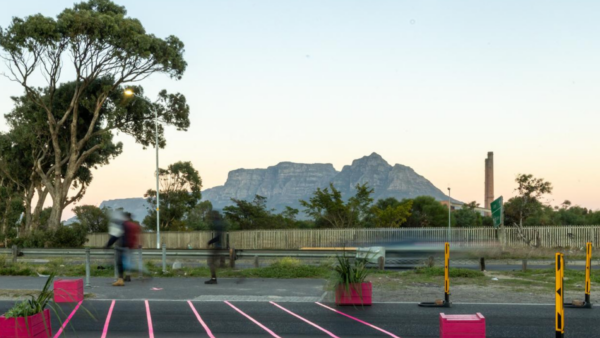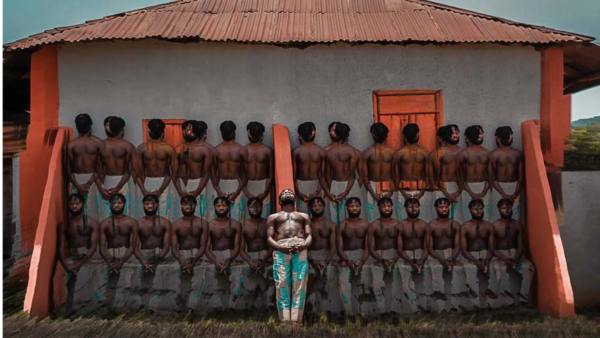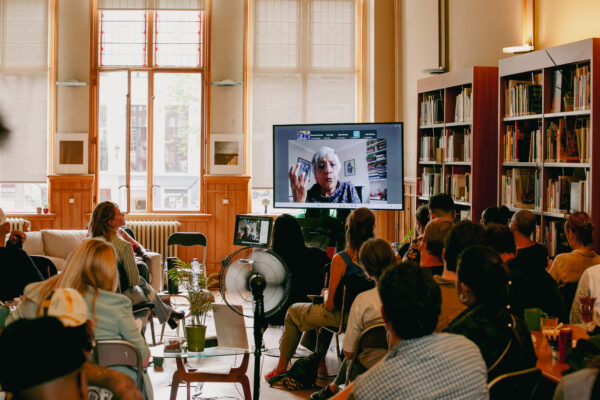

Non Native Native: ‘The message we're sending is activist, but we're not explicitly that'
As Asians in Europe, Belle Phromchanya, Darunee Terdtoontaveedej and Honey Kraiwee noticed that they faced many assumptions and stereotypes. That is why they founded Non Native Native in late 2018, a cultural platform that provides a space for dialogue and reflection on the Asian creative landscape in the Netherlands. At the end of June, in collaboration with like-minded platforms from Germany, they are organizing Non Native Native Fair. The project was supported by the Fund through the Temporary Procedure for International Collaboration.
3 June 2021
We spoke to Belle Phromchanya and Darunee Terdtoontaveedej. Both of them exchanged Asia for Europe in connection with their studies, and are not unique in this. However, the experience was not an unqualified success. Confronted with stereotypical expectations and prejudices, they experienced little room for exchange on subjects that really concerned them. Darunee: ‘In those days, most of the mentors in the department were white and cis male. It was assumed that as an Asian, you are a connoisseur and representative of Japanese design, which is highly regarded here. Or people thought you would identify with the work of Ai Wei Wei, although this is now quite outdated, to give a few of the many examples.’ Belle adds: ‘For example, people also assume that I know a lot about Indonesia because I come from Thailand. Chances are, however, that the average Dutch person knows much more about this country.' Darunee: ‘Europeans are diverse, and naturally Asians are just as diverse.’

platform
There was hardly any room to discuss this situation, at any rate a few years ago. That is why they started Non Native Native. As a cultural platform, they have organized exhibitions, lectures and round-table discussions in recent years that focus on the Asian creative landscape in the Netherlands. The current times, in which there is significant attention for diversity and inclusion and Black Lives Matter emerged, but for instance racism against Asians also increased, has made the platform more activist than intended. Darunee: ‘We think it’s important to draw attention to our cause, but we certainly don’t want to compete with other equally urgent issues. The message we're sending is activist, but we're not explicitly that.’
international
In 2019, they discovered that their platform did not stand in isolation and came in contact with Berlin-based collectives sōydivision and un.thai.tled, both with a wide reach and viable business models. They kept in touch to exchange experiences and learn from each other. The collaboration is now being consolidated in the Non Native Native Fair project, a hybrid event from 26 June to 2 July 2021 that brings together Asian creatives from different backgrounds and disciplines to present their work and products. Sōydivision and un.thai.tled are curating the Berlin contribution.
fair
Non Native Native Fair is a layered project that focuses on telling alternative stories. The aim is to reflect on what it means to be Asian in today's world and to make the issues faced by the Asian diaspora visible. At the same time, the project examines the value of labour. Darunee: ‘Fair remuneration is often a challenge for creatives. So we want to ask our participants to set the price of their own labour, on their own terms.’ In order to recruit participants, an open call was issued. Belle: ‘There turned out to be significant interest, including from outside the creative industry and outside the Netherlands. That is why we scaled up. It underlines the urgency of the issue.’ The fair consists of two parts: the market where various products ranging in price from one to a thousand euros are sold online, and an online programme where participants present themselves and which contains interactive ‘live’ components inspired by teleshopping channels, including on-the-spot discount codes, phone-in sessions and live chats.
Fair remuneration is often a challenge for creatives.
participants
The diversity of the almost 50 participants is considerable. The projects of Tja Ling Hu and of Jing He and Qiaochu Guo stand out, for example. In Before I was born, illustrator Tja Ling Hu depicts the story of her family who emigrated from China to the Netherlands and of whom she knows little because of the closed Chinese culture and the language barrier between her and her older relatives. Tja Ling Hu wants to give others insight into the story behind her family but also behind others with a similar experience. In this way, she wants to create more recognition and understanding for the Chinese community. Jing He and Qiaochu Guo are making a video project for Non Native Native Fair in which they deconstruct the Dutch civic integration exam. The exam does cover relatively trivial matters such as how to behave when invited to dinner and how to call an ambulance. But it totally ignores how to deal with the hostility and racism that many face as an immigrant.
experiment
To what extent the experiment will be a success remains exciting, but several hurdles have already been overcome. For example, it was a challenge in COVID-19 time to set up good communication and the open call online, but both have succeeded. Another challenge is the scale of the event, which is larger than any previous Non Native Native initiative. What is exciting now is whether it will appeal to a wider audience outside the predictable range, and especially whether the message will get across. Belle: ‘Does the audience also understand the knowing wink and the elements we're playing with? Perhaps not, but the fact is that we are planting a seed that might later grow into understanding.’







